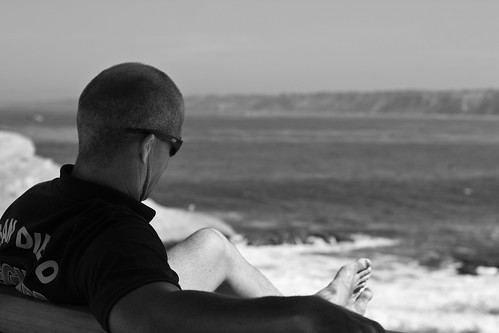How to Become a Lifeguard
Published by Nanni on Sunday, August 05, 2012
Photo credit by marcusjroberts
As much as people might make fun of lifeguards, they provide an important and necessary service. Whether at a hotel pool or a sprawling beach, lifeguards watch swimmers to make sure that accidents are prevented as often as possible. While it isn't difficult to become a professional lifeguard, there are some definite and necessary steps that all applicants have to fulfill.
First and foremost, lifeguards have to meet certain physical criteria. Most lifeguards have to be at least 18 years old, though some pools or community centers may allow lifeguards as young as 16 with a work permit and proper credentials. Lifeguards must be in good physical condition, and they have to be able to swim well enough to pull not only themselves but other swimmers to safety in case of an emergency or accident. If a lifeguard can meet these basic criteria, then they will have to meet the training prerequisites.
The two basic training courses that most lifeguards have to pass are the first aid certification test and the CPR certification test. These two tests are usually a requirement for high school students to pass health class, and the certification is earned as part of the course. The first aid certification states that the holder has a basic understanding of wounds and medical care, and that in an emergency they have some training. The CPR certification (the one that lifeguards may find more important) states that the holder has been trained in CPR and that they are qualified to perform it in case of an emergency. Once a potential lifeguard has earned these two certifications (which must be renewed every year) they must move on to a third area of training.
Before becoming a fully fledged lifeguard, candidates must take and pass a lifeguard training course. These courses are offered by organizations such as the Red Cross and the YMCA, and there is usually a nominal fee for taking the course. Students will learn about aquatic safety, how to hold people during a rescue, and the best methods for saving lives that might otherwise be lost due to aquatic accidents. Once a student has completed this training program they are certified as a lifeguard. After all of these credentials are in order a person has all of the basic prerequisites to become a lifeguard and that person can begin applying for lifeguard positions immediately.
While these credentials are important, there are other skills that a lifeguard should have in order to be good at their job. People skills and communication skills are necessary since lifeguards will have to explain rules to people who use their facilities. Lifeguards will also have to talk to families whose children may be missing or injured, and being able to keep themselves and others calm in this type of situation is essential to the job. Lifeguards can have all of the necessary training and certifications to be the perfect candidate on paper, but most of their skill and ability will have to be developed on the job while keeping people safe.
 | Posted in »
| Posted in »

0 comments: Responses to “ How to Become a Lifeguard ”